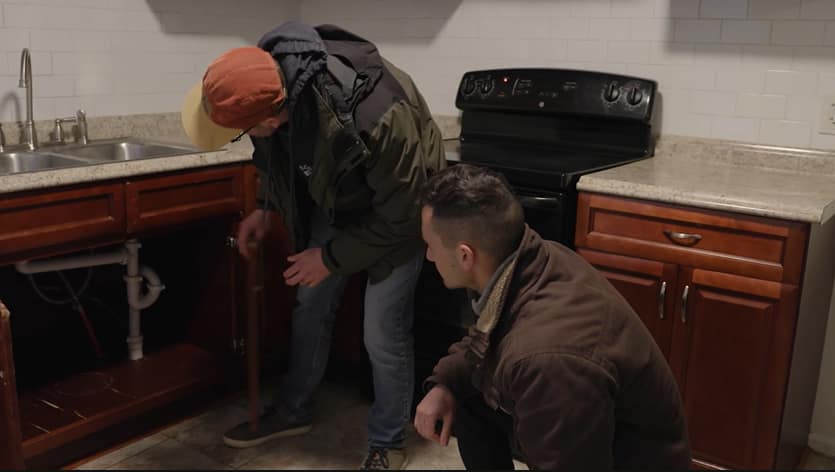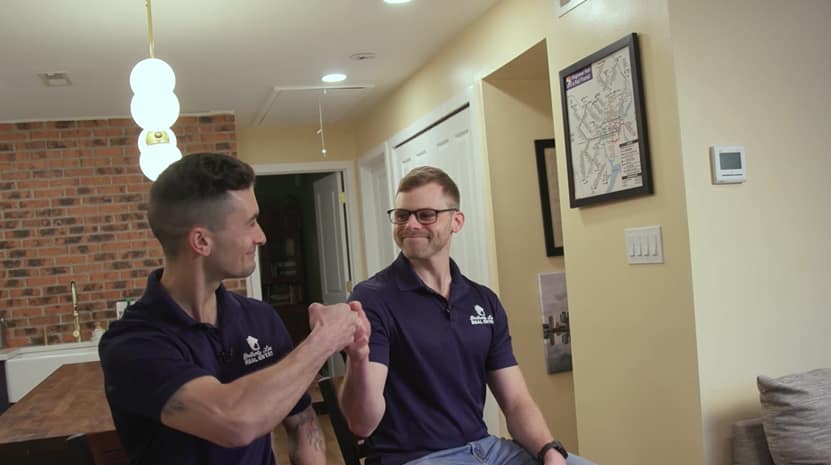How to Protect a House From Cold Weather

Don’t even get me started on winters. And don’t talk to me about managing a housing during the cold. Uhhh, it’s the worst. I do not appreciate the cold weather. Maybe it’s because I’m from San Diego.
But winters, cold air, and the chill exist. And so do homes. So what do you do to save your house from the troubles of the freeze?
Similar to the multiple layers of clothing Jon wears in the winter, your home needs some layers, too. Since we buy houses for cash, the business needed to be aware of how cold weather may impact our properties located in Philadelphia.
Out of the several choices on “how to protect your home from cold weather”, Jon and I found the most practical ones and thought of sharing them with others.
1. Do a Property Check

Heavy snowfall can cause tree branches to crack or fall. Do a check around your property and make sure falling branches won’t damage your home, vehicles, or other property in any way. I strongly advise, “You may want to do preventive pruning before the season starts to avoid any possible damage.”
Additionally, you may:
- Check the outside of your home.
- Clear gutters that are full of water or leaves.
- Sweep the entire property.
- Make efforts to prevent them.
- Check for drafts or leaks.
2. Watch Internal Temperatures
Many people turn up their thermostats during winter. Once the internal temperature of your home is nice and toasty, you shouldn’t significantly change it when you leave the house or while you sleep. This is because your water pipes can freeze.
3. Update Home Insulation

Another way to protect a house from cold weather is to update your home’s insulation system. Properly insulating the pipes and ducts running through your walls and basement will keep your water system running smoothly.
Jon insists on insulating the attic floor. According to Jon, “Heat rises, so if your attic is not sealed off from the rest of your house, you’ll have to use more heat to warm the temperature of your living spaces.”
4. Install a Home Generator
Sometimes, a power outage in your area can affect access to electricity. In the summer, this means the food in your freezer may go bad. In the winter, it means you may not have access to heat for cooking, warm showers, and temperature control.
5. Get Vacation Ready

There’s a lot of work that goes into taking a vacation. However, one of the most important things you can do to prepare is to get your house ready for your absence. If you leave the water and heat off for an extended period, your home may experience problems before your return.
Unforeseen power outages can also affect your property while you’re away. You can also install a smart home thermostat and monitoring system. This protects your home and improves home security. It can even increase home value.
Years ago, Jon and his wife went for a trip to Lake Placid in December. Philly had a sudden power outage while Jon was away. Their return was a welcome sight, as the damaged electronics had been caused by a power surge that was too strong when the electricity was restored.
6. Be Prepared For Emergencies
Your best plan of action to prepare your home for cold weather is to have one!
Over the winter, you should have a list of important telephone numbers, flashlights with working batteries, candles, blankets, hand warmers, and charged energy sources for your phone.
Summary
Jon thinks that a winter-ready home is a true home. And I agree for places that experience winters.
When flipping homes in places prone to winter, we incorporate cold-weather measures beforehand. Our clients often appreciate this gesture.
As homeowners, you can do your bit to protect your home against the cold winter, and we are always available to help.
